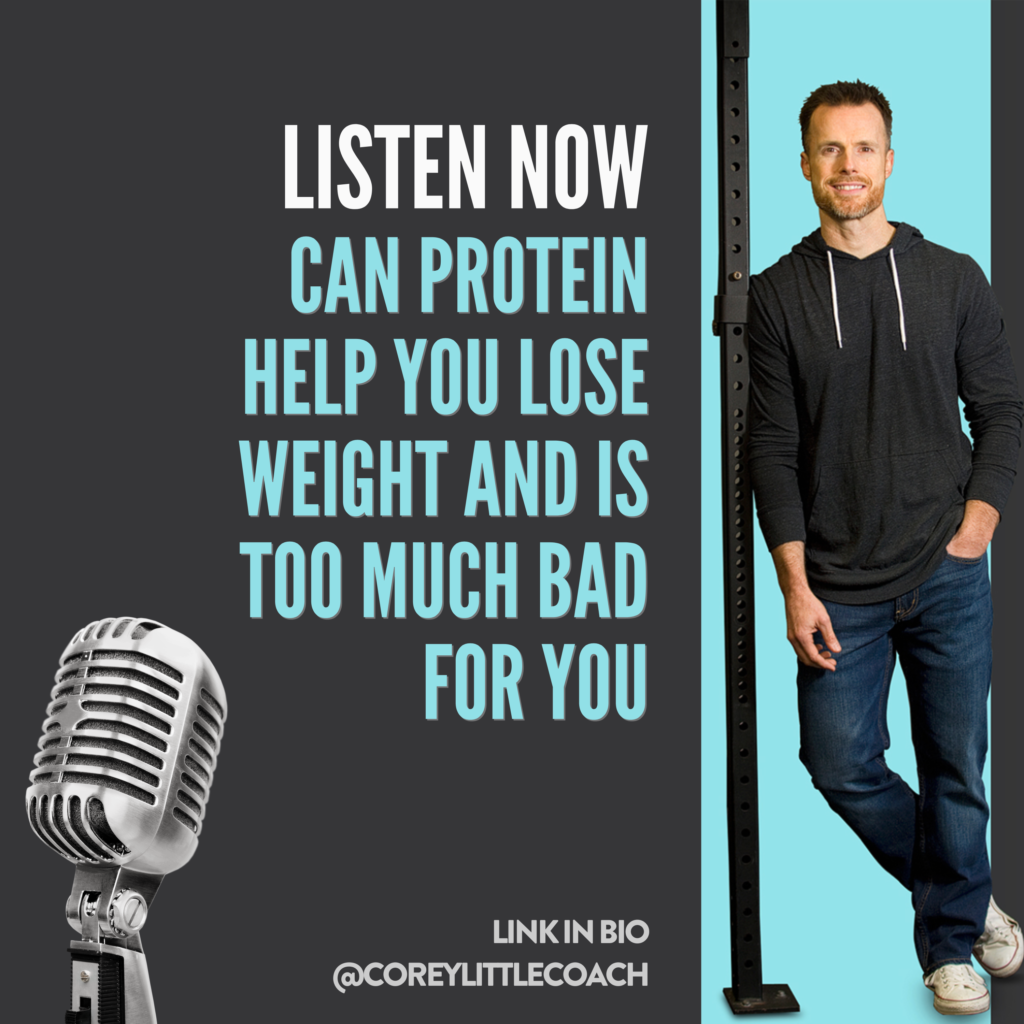 Listen on Spotify | Listen on Apple Podcasts
Listen on Spotify | Listen on Apple Podcasts
Protein, like carbohydrates, is a nutrient that often finds itself at the center of dietary controversies. Some people swear by high-protein diets for muscle building and weight loss, while others warn against the potential health risks of consuming too much. So, where does the truth lie? Let’s dive into the two primary perspectives on protein and see if we can make sense of it all.
Can Protein Help You Lose Weight and Is Too Much Bad For You
The Anti-Protein Perspective
Kidney Damage Concerns
One of the most common arguments against high protein intake is the potential for kidney damage. This belief stems from research showing that high amounts of dietary protein can cause kidney dysfunction in people with pre-existing renal conditions. However, for healthy individuals with normal kidney function, there is no substantial evidence to support the idea that high protein intake is harmful. It’s like saying everyone should avoid dairy because some people are lactose intolerant—flawed logic, right?
Ethical and Nutritional Concerns with Meat
Another argument from the anti-protein crowd focuses on meat consumption. Concerns range from animal cruelty to the nutritional content of meat. While it’s true that some meats are high in saturated fats and cholesterol, there are plenty of lean options that offer a host of beneficial nutrients like B vitamins, zinc, iron, and magnesium. The key is to make informed choices and opt for high-quality, lean meats whenever possible.
The Pro-Protein Perspective
Muscle Building and Repair
Protein is often hailed as the primary structural unit for muscle growth and repair. Athletes, bodybuilders, and fitness enthusiasts consume high amounts of protein to support their training and muscle development. Research supports this, showing that increased protein intake, coupled with resistance training, leads to more muscle growth than training alone.
Metabolism Boost
Eating protein can also raise your metabolism. The thermic effect of food (TEF) measures the energy required to digest, process, and store food. Protein ranks high in TEF, with about 30% of the calories consumed being burned during digestion. This makes protein almost like an edible treadmill, helping you burn more calories.
Satiety and Weight Management
Protein increases satiety more than fats or carbohydrates, helping you feel fuller for longer. This can naturally lead to lower overall caloric intake, making it easier to manage your weight.
Less Likely to be Stored as Fat
Compared to fats and carbohydrates, protein is less likely to be stored as body fat. This is primarily due to its high TEF. So, if you’re looking to avoid gaining fat, increasing your protein intake might be a good strategy.
Government Recommendations and Practical Advice
The Recommended Daily Allowance (RDA) for protein is 0.8 grams per kilogram of body weight, translating to about 50-60 grams per day for sedentary individuals. However, for those who are active and engage in strength training, the recommendation is higher—around 1.2 to 2.0 grams per kilogram of body weight.
Include High-Quality Protein Sources:
Aim to include protein in your diet at least three to four times a day. Good sources include lean meats like skinless chicken breast, turkey breast, pork tenderloin, and lean cuts of beef. Fish, seafood, reduced-fat dairy products, lentils, beans, and high-quality protein shakes are also excellent options.
Beware of the Nut Protein Myth:
While nuts do contain some protein, they are primarily composed of fat. About 80% of the calories in nuts come from fat, making them a good source of fat, not protein.
Ultimately, the decision on how much protein to consume is a personal one. Do your own research, consult trusted sources, and find a balance that works for you. Remember, the goal is not just to survive but to thrive. Eating enough protein can help you achieve a leaner, healthier body and support your overall well-being. Protein is an essential nutrient, and understanding its role can help you make informed decisions about your diet.

